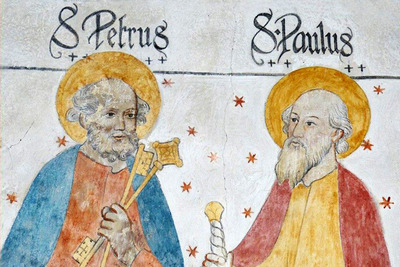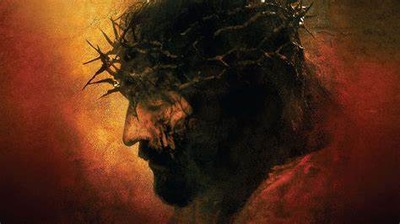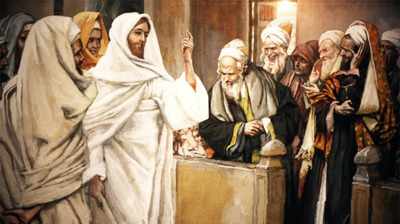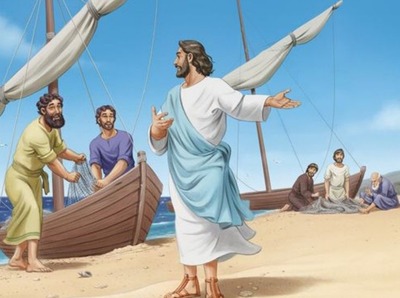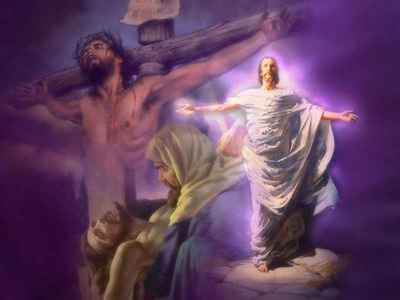July 30, 2023
|by N W
|
0 Comments
|
Commitment, Discipleship, Eternal Life, Father Nixon, Life, Mission, Wisdom
Seventeenth Sunday in Ordinary Time
July 30, 2023 — Year A
Readings: 1 Kgs 3:5, 7-12 / Ps 119 / Rom 8:28-30 / Mt 13:44-52
by Rev. Nixon Negparanon, Pastor
A while ago, I read an article about a college athlete who was training to make the school’s football team. He got up every morning at five a.m. to train. He would run and lift weights for two hours straight. Then he would go back to the dorm, shower, eat breakfast, and go off to his classes. After his classes, he would go back to the athletic facility and work for three more hours with his teammates, learning the playbook, running plays, more weights, etc. The next morning at five a.m., he started the same routine all over again.
Obviously, he had very little, if any, social life. When a reporter asked him why he followed such a difficult schedule, the young man said, “My only goal right now is to be the best football player I can be and to help my team win a championship. If going to parties or anything else, for that matter, prevents me from accomplishing my goal, then why go? The more I train, the better. You see, sacrifice is the thing.”
Brothers and sisters, I was wondering, if Jesus was living now instead of two thousand years ago, if in today’s gospel, He might have used a different story or two. Rather than speak about a pearl merchant who sacrificed everything to buy his dream pearl, or a tenant farmer who sold everything he owned to buy a field with a treasure in it, Jesus may have spoken about a young man who sacrificed a lot to be the best football player that he could be.
What’s the connection between a pearl merchant, a treasure hunter, and this young football player? What do they have in common? What they have in common is this: They have a total commitment to their dream. All of them are willing to sacrifice everything for the goal they have set for themselves. In one case, it is to own the perfect pearl. In the second case, it’s to obtain a great treasure. In the third case, it is to help make his team into a champion.
That’s precisely Jesus’ point in today’s gospel: To be a true follower of God requires total commitment on our part. Citizenship in God’s kingdom requires us to give one hundred percent all of the time, not just when we feel like it. God’s kingdom must be the top priority of our life. We cannot be a true follower of Jesus only part of the time, sort of like a hobby. We cannot be only admirers of Him.
Being a true disciple of Jesus is like being a pearl merchant. Being a true disciple of Jesus is like being a treasure seeker. Being a true disciple of Jesus is like being a football player. It involves total dedication and commitment.
But there is one difference – a big difference between a true disciple of Jesus and our pearl merchant, treasure hunter, and football player. You see, those three people are striving for rewards that will not last, rewards that are transitory. Earthly rewards, while a follower of Jesus is striving for eternal, permanent rewards.
When the pearl merchant dies, his pearl will no longer be of any value to him. When the treasure seeker dies, his treasure will be as useless to him as snowshoes are to somebody in July. When the football player dies, his trophies will be just another keepsake for his family.
But when a true disciple of Jesus dies, a true Christian, the whole kingdom of God rejoices, because it will now shine brighter and brighter. All of God’s people will be edified eternally when a Christian dies.
Money and influence, in and of themselves, are neutral. Money is good when it is used to help others, not when it is only spent on ourselves. Influence and power can be great, even holy, when used to lift up those who have been beaten down by life’s brutality.
At the moment just before our death, I doubt very much if any of us will look back on our lives and wish we spent more hours at the office or made more money or played another round of golf. I do think, however, that we will look back on our lives and wish that we had spent more time with our families and loved ones. More time helping other people and doing good.
You see, then, on our deathbeds we will realize that there is only one thing in life that really counts, and it’s not whether in life we acquired a prize pearl or a rare treasure or won a sport championship. The only thing that will truly matter is what we have become, what we are in God’s eyes while we traveled our paths through life.
Think about this: If our pearl merchant and treasure seeker and football player were willing to sacrifice so much for a prize that will never last, how much more should we be willing to sacrifice for a prize that will last forever? Earthly prizes can be good and even satisfying for a time, but eternal prizes are the best, the very best. So don’t bet on the wrong horse, as they say.
If we are given the choice, what do we prefer: gold, glory, or God? It is easy to say that we prefer God in our lives, but sadly, this is not what we see in people’s priorities today. Often the desire for wealth and honor would push people to spend their precious time for work and business only. The prevailing culture suggests that, to be happy, one must have more and achieve more.
Hence, people are willing to sacrifice their time with the family in order to earn more money. Many are also ready to surrender their Christian principles and values just to keep their fame and glory.
The well-known story of Solomon in our first reading should inspire us all. In a dream, God offered to give him one thing that he wanted. Being young, Solomon could have asked for wealth or glory or long life. But realizing the great task ahead of him, Solomon thought that what he really needed was the wisdom to rule his people well in the ways of God.
Wisdom, or God’s inspiration, is what Solomon asked for, and God was so pleased with Solomon, that He promised him more than the gift of wisdom, including riches, glory, and long life. That’s why the song that we sang several weeks ago is right: “Seek ye first the kingdom of God and His righteousness, and all good things shall be added unto you.”
Mother Teresa of Kolkata and John Paul II both died leaving no property, for they had not accumulated treasures on earth. They found their treasure in a life given totally to the service of God and of the Church.
The parables are true. Those who discover the treasure of the Kingdom will be happy to let go of everything to follow and be close to Jesus.
May Jesus Christ be praised.
KEEP READING
 540-586-8988
540-586-8988 

